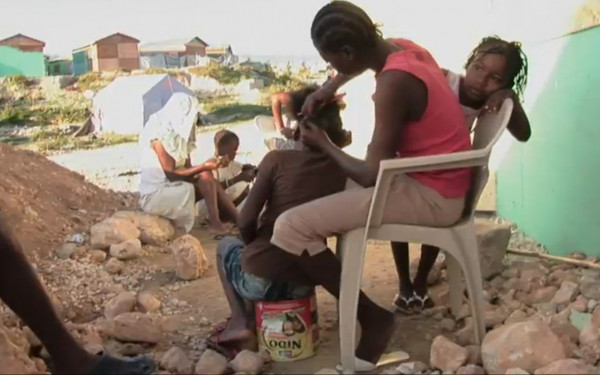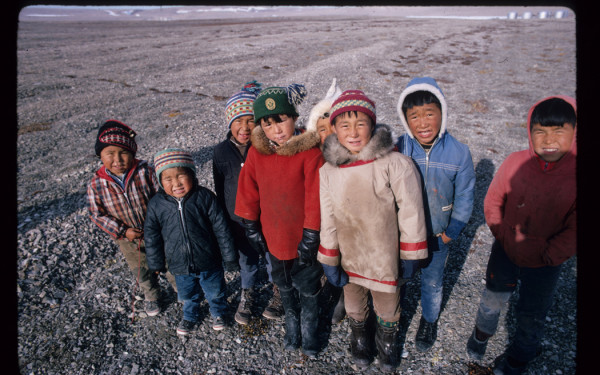Devil’s Gold and the Crimson Road
Cinema Politica Hosts Final Two Screenings of School Year
Cinema Politica is screening its last two films of the year at Concordia in the upcoming weeks: Land in Revolt: Impure Gold and The Scarlet Road.
Land in Revolt: Impure Gold, directed by renowned Argentinean filmmaker Fernando Solanas, denounces the activities of the Canadian mining industry in Argentina.
It places its crosshairs on one particular company, Barrick Gold, documenting its exploitation of the territory and its people, from social injustice to environmental devastation.
The film holds poetic and meditative testimony, illustrating struggles of Argentineans battling against a seemingly invincible corporate giant to regain power over their land, and maintain their cultural identity.Barrick Gold is holding its annual general meeting on April 24 in Toronto. By screening this film in Montreal and Toronto, the members of Cinema Politica hope to raise awareness among Canadians on this mining company’s activities abroad.
“We like to showcase artists from the Global South who tackle issues of social injustice in their own communities,” Ezra Winton, founder and programmer of the Cinema Politica Network, said of the movie.
“By showing the film here, we hope to implicate Canadian audiences, including ourselves, and compel everyone to get involved.
“Canadian mining companies have the worst human rights and environmental records on the planet,” Winton added.
Argentina holds the sixth-largest mineral reserve in the world, assessed at over USD$200 billion, and Barrick Gold is active in one of the largest copper gold projects in the Bajo de la Alumbrera copper-gold mine.
“They saw their animals die because of contamination, they saw bulldozers run over houses and farms and decided to leave,” laments Solanas during a panoramic shot revealing the desolate landscape of the area.
The environmental impacts of Barrick Gold’s actions are devastating: 300 tons of rock are blasted every day and are then ground by a machine that uses energy equivalent to that of an entire city.
Metals are then separated using cyanide and other substances in a man-made lake extending over 30 hectares, consuming over four million litres of water per hour, adding up to 88 million litres a day.
The leaks and acid rain, resulting from the mountain being cut open and exposed to air and water, will continue to pollute all the surrounding river sources for centuries, according to the filmmaker.
The parallel between the film and the struggles of the Idle No More movement in Canada fighting to stop the exploitation of tar sands and the construction of the Keystone Pipeline is a natural one to make for Winston.
“We’re living in an increasingly connected world and we need to take action against Barrick Gold and other exploitative mining companies, in solidarity with not only the people in Latin America but with the indigenous cultures here,” Winton insisted.

The Road to…
Treating an entirely different topic, Cinema Politica’s final film screened this year at Concordia is The Scarlet Road, which explores the life of Australian sex worker Rachel Wotton, who has the particularity of working with people suffering from disabilities.
Director Catherine Scott offers a different perspective on the profession of sex workers, showing the positive impact they can have on the lives of disabled people.
The documentary reveals how sexuality is an essential part of what makes us human. Without the help of sex workers, a large portion of people with disabilities, who are already highly marginalized, would be denied their sexual rights.
“It’s a very powerful, moving and sensitive portrayal of this complicated relationship between Rachel and her clients because some of them have important ability issues,” Winton said.
“What really comes through in the film is how neglected this area is, in terms of people living with various disabilities. The idea is that they need and want sex, and that sexual experiences are part of what makes us whole.”
In this light, the subjects of the film escape judgment and reveal themselves, Rachel especially, as people here to serve altruistic purposes. Her occupation appears indispensable in a well-functioning society.
“These are two groups in society that are extremely marginalized. A lot of assumptions are made, and a lot of laws are made on their behalf,” said Winton.
“Social norms form without people really getting to know either group […] and what you come away with is how intensely human this interaction is and how there’s nothing immoral about it,” Winton said.
Rachel Wotton will be present at the screening where she’ll be speaking about these issues alongside members from local sex worker advocacy group Stella.






